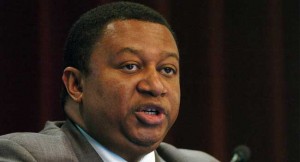By Reuters
Oil prices rose on Tuesday to their highest this month as a growing consensus emerged in the market that OPEC would overcome internal disputes and scepticism to strike a deal that materially reduces crude output.
But the market was sensitive to comments from officials attending a technical meeting of the Organization of the Petroleum Exporting Countries (OPEC) which was trying to hammer out the details of an agreement before the formal meeting on November 30.
Brent crude oil futures (LCOc1) were up 39 cents a barrel at $49.29 by 1440 GMT, having earlier risen $1 in a push against the $50 mark for the first time since the end of October.
U.S. West Texas Intermediate (WTI) crude futures (CLc1) were up 12 cents at $48.36 a barrel.
After weeks of doubts over the resolve of the 14-member cartel, most oil market participants now believe OPEC would harm its reputation if an output cut deal were not struck next week.
Prices on Tuesday were boosted by comments from a Nigerian official attending an OPEC technical meeting, which is trying to hammer out details of a deal, that it was likely all countries would be “on board” by the end of Tuesday.
But they slumped into negative territory after OPEC sources told Reuters agreement to a 4.0-4.5 percent output cut by all members aside from Libya and Nigeria would still hinge next week on the backing of Iran and Iraq.
OPEC is trying to bring its members and non-OPEC producer Russia to agree on a coordinated cut to prop up the market, beset by a two-year glut in supplies, by bringing production into line with consumption.
It said at the end of September it aimed to cut production to between 32.5 million and 33 million barrels per day compared with its recent record output of around 33.8 million bpd.
“We have all along expected that OPEC would strike a deal as failure would have further removed its credibility,” said Ole Hansen, head of commodity research at Saxo Bank.
“Once the dust settles and a deal has been reached, the market may want to see whether the cartel is able, for the first time in years, to comply with its own stated production targets.
While a ceiling for overall OPEC production may be agreed by Nov. 30, it is unclear whether clear quotas per member state would be set. Some countries, such as Nigeria, Iraq, Libya and Iran, argue they should be exempt because their output has been hit by conflict or sanctions.
“Ultimately, it looks as if Saudi Arabia and its allied Gulf neighbors will reduce production on their own,” analysts at Commerzbank said.
“No ground-breaking agreement on production caps or cuts should be expected from the OPEC meeting. The oil market is likely to remain oversupplied for some time yet even after the OPEC meeting, especially since U.S. oil production will soon start rising again.”














